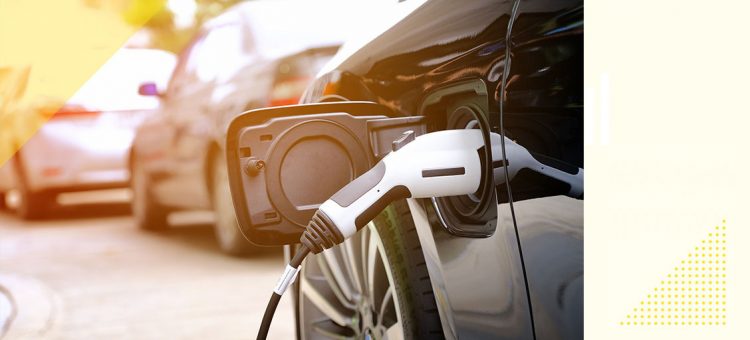Key findings:
- Rivian sees minor gains in brand awareness following its recent IPO campaign
- One in four car owners express interest in paying for a recurring in-car subscription, with advanced technological capabilities such as in-car internet, remote car start capability and software updates among the leading features
- Half of U.S. adults express interest in owning an electric car, and 1 in 3 plan on purchasing one as their next vehicle
- Newer technology and AI capabilities are a draw for younger consumers interested in EVs
- Tesla remains the distant leader in brand awareness and purchase intent among electric vehicle brands
Tesla remains the overwhelming leader in EV awareness and purchase intent, while Rivian sees minor gains post-IPO
Nearly three in four (71%) U.S. adults have heard of Tesla, the only EV brand with awareness greater than 50%. Chevrolet Bolt (44%), Nissan Leaf (32%) trail far behind. Among those aware of each respective brand, Tesla also leads in purchase intent at 37% - also the only brand with double digit levels.
Rivian, following its recent IPO, sees awareness rise from 7% in October 2021 to 11% year end (December 2021), driven by men, wealthier consumers, and older age groups.
- Awareness among men increased from 13% to 18% (+5pp), compared with a mere 2pp increase among women (1% to 3%)
- Awareness increased from 15% to 19% (+4pp) among those making 100k or more annually, from 6% to 11% (+5pp) among those making between 50k and 100k, and from 3% to 5% (+2pp) among those making less than 50k annually
- Boomers see the largest bump in awareness, from 6% to 12% (+6pp), compared with Gen X (8% to 11%; +3pp), Millennials (7% to 10%; 3pp) , and Gen Zers (8% to 6%; -2pp).
Rivian, despite a minor increase in awareness, sees virtually no movement in purchase intent from October 2021 (3% to 4% in December 2021).
One in four (24%) car owners are willing to pay for in-car subscriptions, but the majority (72%) show little to no interest
Consumers who express interest in owning an electric vehicle are more willing to pay for recurring in-car subscriptions, compared to those who do not show interest (37% vs 12%).
Among those who express interest, traditional subscription offerings such as live traffic and navigation (44%), and in-vehicle safety and security, such as OnStar (43%) are the leading features they are willing to pay a subscription for. Newer technology with advanced capabilities, such as in-car internet (42%), remote car start capability (39%), and car software updates (36%) also see high levels of interest.
Half of all car owners (48%) express interest in owning an electric vehicle
One in three (33%) car owners also say they are very or somewhat likely to purchase an electric car as their next vehicle. The number increases to 59% if money were no object, highlighting the industry's challenge in producing lower-price vehicles. Half (52%) would purchase an EV at the same price point as their current vehicle.
Among those who are interested in owning an electric vehicle, 60% believe EVs are the future of transportation, compared with only 16% of those who do not express any interest.
Americans who look to buying an EV for their next vehicle are more open to purchasing smaller vehicles, compared with those who are not likely to do so:
- 34% would consider a sedan (vs. 24%), and 17% would consider a hatchback ( vs. 8%)
- They are less likely to consider a pickup truck (19% vs 30%)
Newer technology and AI capabilities are a draw for younger consumers interested in EVs
Saving money on fuel and reducing environmental impact are the most common reasons for wanting to own an electric vehicle (45% and 37%), while a lack of charging stations (50%), price (51%), and limited driving range (48%), are the primary concerns surrounding e-vehicle ownership.
Gen Z and Millennials show greater interest in adopting new technologies and AI capabilities, such as self driving technology, compared with older generations.
What are your primary motivations for wanting to own an electric vehicle?
Read more about our polling methodology here.
Methodology
This SurveyMonkey study was conducted between December 15-20, 2021 among a national sample of 3,338 adults. Respondents for this survey were selected from the more than 2 million people who take surveys on our platform each day. The modeled error estimate for this survey is plus or minus 2.5 percentage points. Data were weighted for age, race, sex, education, and geography using the Census Bureau’s American Community Survey to reflect the demographic composition of the United States.



